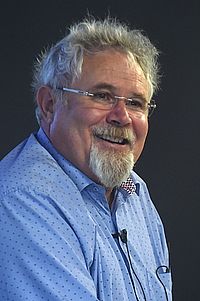
Professor Richie Poulton is Director of the Dunedin Multidisciplinary Health and Development Research Unit which conducts the Dunedin longitudinal study, one of the most detailed studies of human health and development ever undertaken.
In 2007, he established and became a Co-Director of the National Centre for Lifecourse Research, a research centre based at the University of Otago in Dunedin, but with partners located at universities across New Zealand and internationally.
He has published 250+ peer-reviewed scientific papers, with many appearing in leading international journals. His research interests include: mental health, nature-nurture interplay, and psychosocial determinants of chronic physical disease. In 2014, he was named as a Highly Cited Researcher by Thomson-Reuters (one of only four New Zealanders so designated) and was listed in 2015 World’s Most Influential Scientific Minds, Thomson-Reuters.
In 2004, he was awarded the New Zealand Association of Scientist’s Research Medal and the Health Research Council of New Zealand’s (inaugural) Liley Medal for Excellence in Health Research. In
2005 he was awarded the University of Otago’s Rowheath Trust Award and Carl Smith Medal for Outstanding Early Career Achievement, and also received the Dunedin School of Medicine Distinguished Research Award. In 2010, he was elected as a Fellow of the Royal Society of New Zealand and was the joint recipient of the RSNZ Dame Joan Metge Medal for excellence and building relationships in the social science research community. In 2014, he was awarded the Dunedin School of Medicine Dean’s Medal for Research Excellence. In 2016, he received the Celebrating Research Excellence Award from the Health Research Council for ‘an outstanding contribution to health research throughout an established career’. Earlier this year, the Dunedin Study Research Group, which he leads, received the New Zealand Prime Minister’s Science Prize for work that has had a significant impact on New Zealand and internationally


